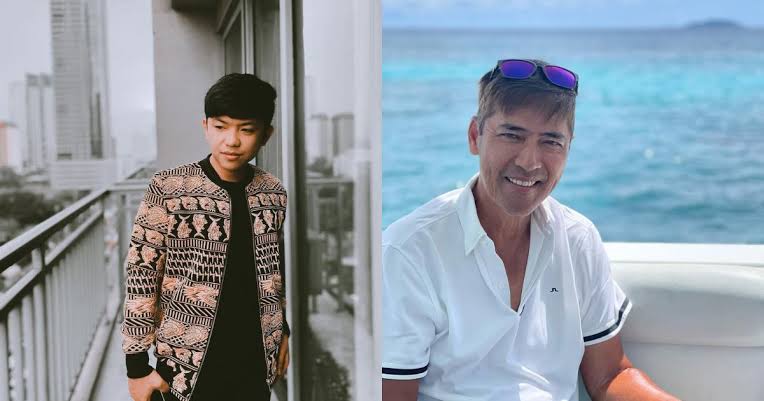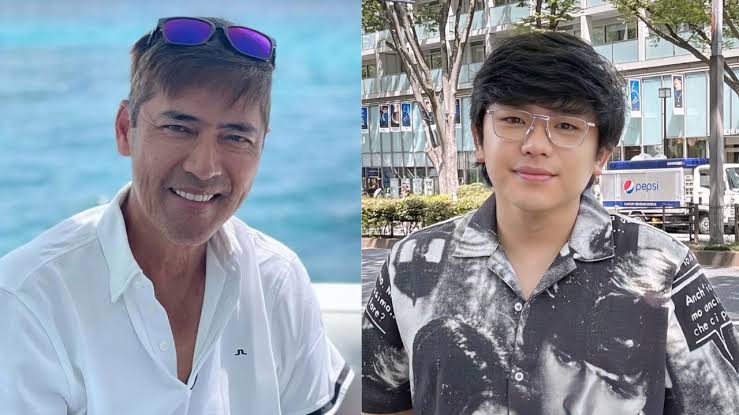The ongoing feud between filmmaker Darryl Yap and Vic Sotto’s camp has escalated to the courtroom, as Yap has filed a motion seeking a gag order against the veteran actor-comedian’s team. The conflict ignited following the release of a controversial trailer for Yap’s latest film, a situation that has now sparked heated debates within the entertainment industry and beyond. This legal move has raised questions about the intersection of art, freedom of expression, and the boundaries of public discourse.
The Controversial Trailer and Its Fallout
The controversy stems from a recent trailer released by Darryl Yap for his latest film, which many have described as polarizing. Known for his boundary-pushing style, Yap has become a figure associated with bold, often controversial content in Filipino cinema. However, this particular trailer appears to have crossed a line for many viewers, with several scenes and jokes being perceived as disrespectful, particularly towards prominent personalities in the entertainment industry.
At the heart of the debate is the film’s satirical portrayal of Vic Sotto, a beloved figure in the Philippine showbiz landscape. While humor is subjective and often used as a tool for social commentary, some fans and critics have argued that Yap’s take on Sotto’s image and persona is distasteful. The trailer’s portrayal of Sotto, who is known for his wholesome image and decades of contributions to the Filipino entertainment industry, was seen by many as an affront to his legacy. The scene, which included an exaggerated representation of the actor, ignited a firestorm of criticism, with social media platforms becoming a battleground for opposing views.

In response to the backlash, Sotto’s camp issued public statements, condemning the portrayal and expressing concerns about the negative impact on the actor’s reputation. They argued that the film was attempting to capitalize on Sotto’s status to generate controversy, ultimately tarnishing his image. These statements by Sotto’s camp have led to an intensifying media circus, drawing attention to the ongoing feud and raising questions about the ethics of satire in film and the line between creativity and defamation.

The Gag Order: A Legal Strategy
In an unexpected twist, Darryl Yap’s legal team filed a motion in court seeking a gag order against Vic Sotto’s camp. A gag order, in legal terms, is a judicial directive that prohibits parties from publicly discussing certain issues or cases to prevent influencing potential outcomes or prejudicing the public. Yap’s legal team argues that Sotto’s public statements are damaging the film’s reputation and undermining its promotional efforts. The filmmaker contends that the criticism of the trailer is not just a matter of opinion but constitutes defamatory remarks that are harmful to his professional standing.

The gag order seeks to stop Sotto’s camp from making further public statements about the film, specifically those that involve defamatory comments or attacks on Yap’s creative work. Yap’s team believes that the continued outcry, fueled by these statements, is hindering the film’s progress, as it may lead to boycotts or negative publicity even before its official release. By filing for a gag order, Yap hopes to shield the film from further negative attention and allow it to proceed without interference from the ongoing dispute.
This legal move has triggered debates about the role of free speech in the entertainment industry. Some experts argue that the gag order is an overreaction and an attempt to suppress public criticism of a creative project. After all, critics have the right to express their opinions, and public figures like Sotto are no strangers to criticism. Others, however, see Yap’s actions as an effort to protect his intellectual property and professional reputation in the face of what he perceives as an attack on his work.
Public Reaction and Industry Implications
The filing of the gag order has not gone unnoticed, with both the public and industry professionals weighing in on the matter. Supporters of Darryl Yap argue that the filmmaker is within his rights to protect his work from defamatory remarks, especially in an era where the lines between personal and professional lives are often blurred in the age of social media. They believe that creative freedom is crucial, and Yap should not be hindered by negative press that misrepresents his artistic intentions.
On the other hand, Vic Sotto’s supporters view the gag order as an attempt to silence valid criticism. They argue that the public has the right to respond to films and media content, especially when it touches on sensitive topics or public figures. For many, the controversy surrounding the film trailer represents a deeper issue about the limits of humor, satire, and artistic expression. While humor is often used as a vehicle for addressing societal issues, it must be done responsibly, especially when dealing with public figures who have long-established reputations.
The industry itself is watching closely, as the outcome of this legal battle could set a precedent for how similar conflicts are handled in the future. The entertainment sector, particularly film and television, relies on the free flow of ideas, criticism, and creativity. However, as the boundaries between personal and professional spaces continue to narrow, the question arises: should creators be protected from public backlash, or should they be held accountable for the impact their work has on individuals and communities?
A Reflection of Changing Dynamics in Philippine Cinema
This controversy between Darryl Yap and Vic Sotto also highlights a broader shift in the Philippine entertainment industry. The emergence of social media as a platform for both creators and audiences to engage in direct, unfiltered dialogue has dramatically changed the dynamics between the public and the creators of content. In the past, actors, filmmakers, and comedians could rely on traditional media outlets for public relations and image management. Today, social media platforms allow fans and critics alike to make their voices heard in real-time, often amplifying controversies to a much larger scale.
Furthermore, the rise of streaming platforms and digital content creation has democratized the film industry, providing a space for creators like Yap to produce films outside the constraints of traditional studio systems. However, this newfound freedom comes with its own set of challenges, particularly when it comes to managing public perception. Filmmakers and entertainers are no longer just responsible for their work—they must also navigate the complexities of public relations in an increasingly connected world.
Looking Ahead: What’s Next for the Film and the Industry?
As the legal proceedings continue, it remains to be seen whether the court will grant Yap’s request for a gag order and how the controversy will ultimately affect the film’s release. Regardless of the outcome, this dispute highlights the evolving relationship between art, law, and public opinion in the Philippine entertainment industry. The Darryl Yap vs. Vic Sotto case serves as a reminder that, while the world of cinema is a space for creative freedom and expression, it is also one where the line between artistic license and the protection of personal reputations can be easily blurred.
For the film industry, this case may prompt a reevaluation of how public figures are depicted in media and how filmmakers balance satire with respect for individuals. Ultimately, the case underscores the importance of navigating the intersection of creative expression and personal responsibility, a challenge that is only becoming more relevant as digital platforms continue to reshape the media landscape. Whether or not Yap succeeds in his legal action, the debate surrounding his film trailer is bound to leave a lasting impact on the entertainment industry and its stakeholders.
Do follow Uae stories for more Updates
1 Billion Followers Summit Kicks Off in Dubai: A Global Gathering of Digital Pioneers












